#Tudor primary sources
Explore tagged Tumblr posts
Text

TUDORWEEK2024 - DAY FIVE: Your Favourite Tudor Iconography
The Hours of Elizabeth The Queen
The Hours of Elizabeth the Queen has been described as the most lavish Book of Hours produced in fifteenth-century England. The text itself contains three sequences of Hours: the Hours of the Virgin and also the Hours of the Cross and of the Passion together with a number of other devotional texts. The illustration is particularly lavish. In addition to the full-page images before important textual divisions the book includes an astonishing 423 painted initials with narrative or decorative scenes. The manuscript is known as the Hours of the Queen because of an inscription at the bottom of the pictured miniature of the Crucifixion: ‘Elisabeth the quene’. This appears to be a signature of Elizabeth of York (d. 1503), daughter of Edward IV (1461-83) and wife of Henry VII (1485-1509). However, the manuscript was not originally made for her. Later in the volume (f. 152) is a prayer for the soul of Cecily or Cicely (d. 1450), Duchess of Warwick, and it is likely that the book was made for a member of her family, possibly her father, the powerful Richard Neville (b. 1400, d. 1460), 5th Earl of Salisbury, the nephew of Henry IV (1399-1413). Thus this magnificent book was deemed important enough to have been passed to important members of English aristocracy, in this case, ultimately the daughter, wife, and mother of successive kings of England.
#tudorweek2024#elizabeth of york#medieval manuscripts#book of hours#tudor history#primary sources#tudorerasource#15th century#medieval history
25 notes
·
View notes
Text

"The one sent should not fail to pay his respects to some of the lords here, who have influence with the king; and to propitiate the most illustrious and beloved Anne with some trifles, preferably something brave and novel from those parts, which she may know to be worth from 1,200 to 1,300 crowns a year (intertenir la Ill. et Amata Anna con alcuni cosselin piu presto nove et galante di quelle parte, che cognose da ascendemo ad un ducento o trecento scudi lo anno), to be divided among two or three visits." -Augustino Scarpinello, Milanese Ambassador in England, to Francesco Sforza, Duke of Milan. 1531.
#anne boleyn#anneboleynedit#primary sources#in a battle called me vs the prevalence of imperial reports in tudor historiography...#and i am loooooosing <3
52 notes
·
View notes
Text

#tudor dynasty#house of tudor#tudor#tudors#queen elizabeth i of england#queen elizabeth of england#elizabeth tudor#elizabeth i#queen elizabeth#primary sources#Elizabethan era#Tudor Age#Tudor England
11 notes
·
View notes
Text
‘No less believable, because he had heard it from “person’s of honour”, was the tradition that Protector Somerset had observed “a bloody sword come out of the wall”, prophesying his own decapitation’.
- D.R Woolf, ‘The “Common Voice”: History, Folklore and Oral Tradition in Early Modern England’, p. 49.
(They should’ve put this in Becoming Elizabeth. For the drama of it all)
#Altho im not sure where it’d fit really lol#Edward Seymour#popular cultures#primary sources#secondary sources#the Tudors#Tudor history#early modern history#Edwardian#becoming Elizabeth#Tudors
11 notes
·
View notes
Text

Katharine of Aragon is more in the public consciousness now due to the TV show 'Spanish Princess'. Katharine has of course been an interesting historical figure for quite some time because she is the first wife of the infamous Henry VIII. This book provides a new perspective on Katharine because it includes far more background on her Spanish upbringing, Spanish culture, and how that continued to define her in England during her first fifteen years in the country. Additionally, Heather uses rich primary sources, such as 'The Receyt of Ladie Kateryne', which have either not been sourced or infrequently referred to in other biographies about Katharine. In this, Heather's multilingual abilities - especially her fluent Spanish - are put to good use. No one, for example, has considered he rippling impact of terminating Katharine's marriage on the Trastamara and Habsburg dynasties in Europe. Katherine was as important abroad as she was in England.
' An incisive, illuminating and impressive study that probes deep into the background of Katharine of Aragon, masterfully explored by one of our most engaging historians.'--Nathen Amin, author of Son of Prophecy: The Rise of Henry Tudor
'This vivid and scholarly reappraisal by Heather Darsie casts Queen Katharine of Aragon in a brilliant and compelling new light, placing her Spanish heritage and sharp intellect at the story's heart. No longer simply a supporting player in Henry VIII's "Great Matter", Katharine takes centre stage as a commanding, complex, and formidable political actor.'--Dr Owen Emmerson, author of Catherine and Anne: Queens, Rivals, Mothers
Heather R. Darsie is an independent researcher in the US specializing in early modern history. She focuses on researching the Holy Roman Empire and England in the early 16th century. She is the author of Anna, Duchess of Cleves and Catherine of Aragon - Spanish Princess. She runs the website MaidensAndManuscripts.com.
16 notes
·
View notes
Text

To do
choir rehearsal
assignment instructions
watch H.H. (lol this is assigned reading)
compile list of p sources for Empires
find interesting texts for Tudor essay
read source analysis instructions (Empires and R+F)
sketch topical essay out
wash clothes
CHECK MAIL
brainstorm ideas for big essay for Tudors (god help it's another 55% essay that is actually LESS words than last year's lolll)
work out (maybe run but the weather is too tragic to do it outside. I think i should strength train tbh, but I don't have a place lol)
Below are readings for the week (only Tudors is a priority)
start to read Bernard
read Tudor primary sources (I literally don't know what they are lol)
start to read Lennard
"" Assman
"" Olivier
"" Guillons
"" Traverso
"" Favorinus
I hope everyone is having a fabulous 2025 so far! I got into a Shakespeare sort of "showcase" and we also just finished shooting a short film for a festival!! exciting start. At the same time, my friend has been struggling hard and as a result I think my mood is lower and stuff, kinda crappy. I'm going to include a list below of non-immediate tasks I need to complete bc otherwise they will not get done.
middle term tasks for me include
getting. a. job.
hair cut (it's tragic atm, damaged as hell)
eye test (incl glasses that change indoors v out maybe?? I get migraines)
(speaking of migraines) getting off migraine meds (they're actually beta blockers and they decrease the efficacy of my anti-depressants AND make asthma worse and they don't do anything???)
filling in all the documentation for exchange (which is why i need to call them bc (despite going to the brief) I am so confused)
Decluttering my belongings (can't move overseas without getting rid of everything I own xx)
go to vet
okk!! hope everyone is enjoying their lives lol, remember to schedule in breaks in all your study sessions etc etc
#dark academia#history student#history studyblr#study motivation#studyblr#4.0 gpa#chaotic academia#productivity challenge#7.0 gpa#study help#college student#studying#studyspo#history study#history#tudor history#exchange#academic validation#academic research#academia#academics#cottage academia#dark academic aesthetic#classic academia#human history#studies#productivityboost#productivity#productive
12 notes
·
View notes
Note
Is Katherine Howard very 'luxurious'? How is her family's expenditure situation?
✨ terfs/zionists fuck off ✨
i’m not sure what you mean by your question abt her family: her father ran up debts and struggled financially, but the howards were, generally, wealthy… and her uncle and grandmother likely financed her early career at court.
i think a lot has been said about how indulgent, frivolous and spoilt katherine was as queen, with alison weir suggesting “each day, katherine discovered some new caprice, and her greed earned her the disapproval of many of the older people at court” — for which there is no evidence — and lacey baldwin smith characterised katherine as “a doll upon which to lavish all the luxury and display of tudor imagination. at twenty-one katherine howard, temperamentally, was quite capable of acting the role of the pampered and irresponsible child bride, but she lacked the wit, patience and understanding to play the companion” — which can be disputed with evidence of her involving herself with the queen’s work, and multiple positive descriptions of her by her contemporaries.
moreover, the primary source for the idea that katherine was indulgent and frivolous comes from the spanish chronicle, so it’s not reliable: russell admits that “a spanish merchant living in london, who admittedly never let fact stand in the way of a good story, claimed later that ‘the king had no wife who made him spend so much money in dresses and jewels as she did, who every day had some new caprice’”. likewise, baldwin smith described the same author as “one not very reliable chronicler”. so, there has so be a level of criticism applied to the validity afforded to this source. that’s just basic analytical skill as a historian.
as for actual sources as to her frivolity, we can say that a considerable portion of her collection of jewels and lands (excluding those that came from the queen’s collection) came from henry by way of gifts, with marillac reporting “the king is so amorous of her that he cannot treat her well enough”. the spanish chronicle seems to have rendered this as something katherine demanded, that “the king had no wife who made him spend so much money in dresses and jewels as she did”, which almost certainly seems incorrect, if for no other reason than katherine was not his wife for very long. true enough, if we traipse through her inventories and other records, we can identify numerous gifts from henry. we can also identify gifts that katherine regifted to others, as well as pieces she had repurposed. that she was reported as favouring french fashions suggest her wardrobe was distinct from her predecessors enough to suggest new pieces were purchased in place of her inheriting pieces from jane seymour — albeit anne of cleves did also introduce french fashions to her wardrobe — but this can’t be corroborated with evidence, as hayward has pointed out: “little has come to light about katherine’s wardrobe”.
comparatively, it does not appear that katherine’s material wealth was excessive relative to henry’s other wives. as russell points out: “a defence of her spending can be mounted by pointing out that it does not seem so great when set in its wider context. her jewellery acquisitions in the summer and winter of 1540, for instance, compare favourably in cost to those commissioned by or for anne boleyn, even before she became queen”. likewise tallis’ research has indicated that “jane seymour’s collection was significantly larger than that of either of her successors. […] katherine howard’s inventory consisted of more items than that of the queenly inventory of her successor, katherine parr”.
simply put: the royal court was an exorbitant/garish display of opulence and wealth, irrespective of katherine — earlier in his reign henry’s court was described as a remarkable show of “jewels and gold and silver, the pomp being unprecedented”. katherine as queen, and as an english-born woman lacking international royal standing, was simply more vulnerable to accusations of overspending and frivolity than her husband or other members of the royal family, just as anne boleyn had been. this extends into her historiography too, with gareth russell claiming katherine valued henry because he “could give her everything she ever wanted”, and that “katherine’s extravagance was not balanced by any particular displays of piety or memorable largesse”; perpetuating this idea of teenaged frivolity while otherwise relishing the lavishness of royal and aristocratic circles. consider how russell describes henry’s court otherwise (“the henrician court in its twilight, a glittering but pernicious sunset” in the introduction, as one example). he wants to have it both ways, critical of the barbarity of the henrician court, whilst finding irresistible the level of wealth only barbarity can uphold — this extends beyond henry viii’s court, as russell has also written about the queen mother and titanic, so clearly richness and materiality has its own draw as a subject. meanwhile for katherine, it is used against her: “the very things that made katherine howard’s time as henry viii’s queen so pleasant became a cudgel with which to beat her” (blakemore). moreover i think it is a detail we read backwards into katherine’s historiography, as people allow archetypes about teenage girls, and young women who marry older, wealthy men, to colour their conceptualisation of katherine howard. i’m old enough to remember how people talked about anna nicole smith. especially given the fact that materialism is an element of the investigation into her downfall — “one cannot read the surviving records of the scandal without noticing the ubiquitous concern with the material circumstances of katherine’s indiscretions” (irish) — as the council were very interested in the material connections between the people involved as evidence of courtship conventions by way of gift-giving etc. it has been extrapolated in popular imagination to justify katherine’s actions as those of a spoilt teenage girl.
16 notes
·
View notes
Text

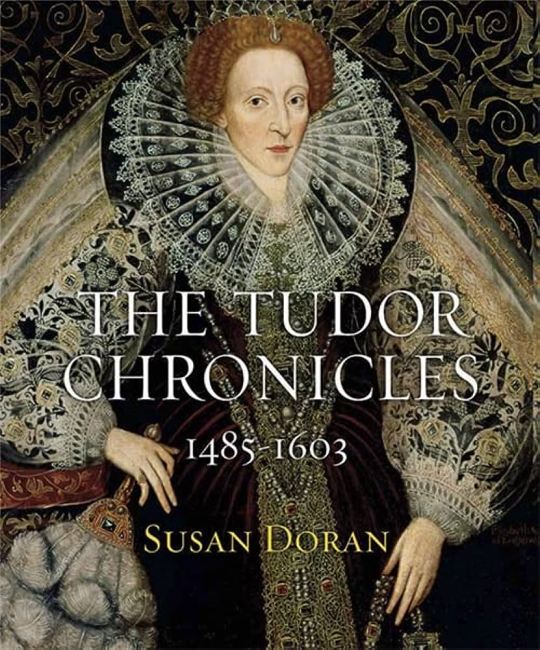

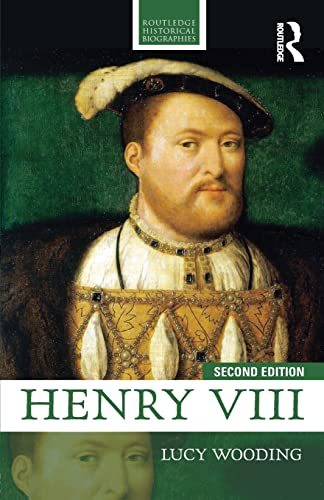
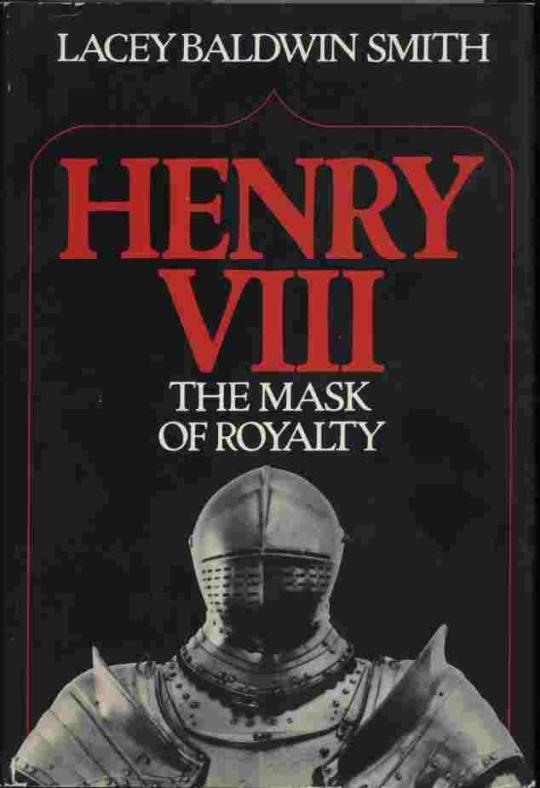
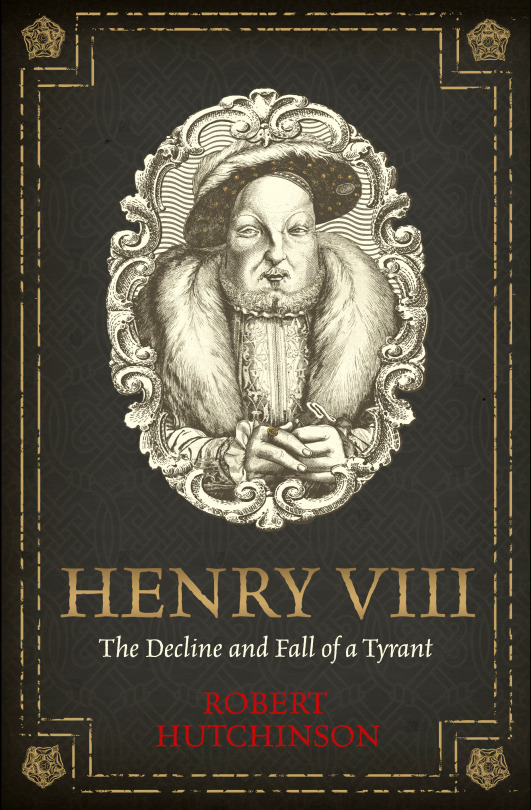

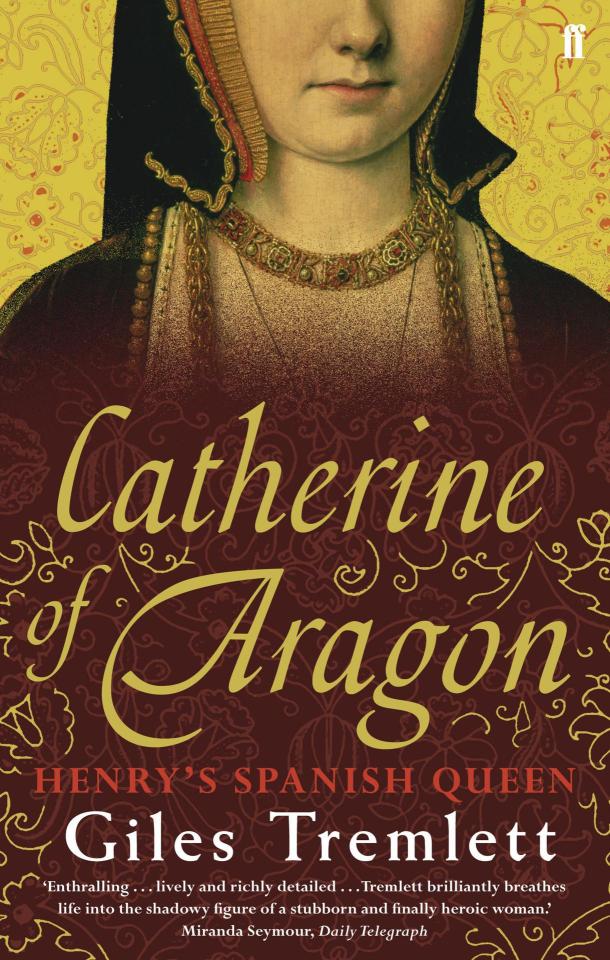

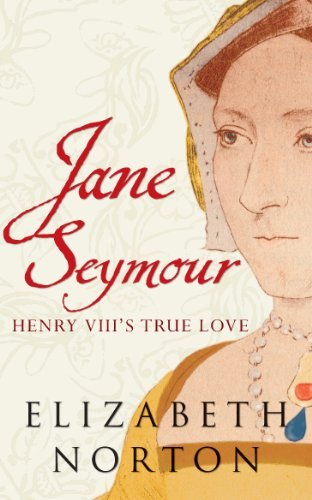



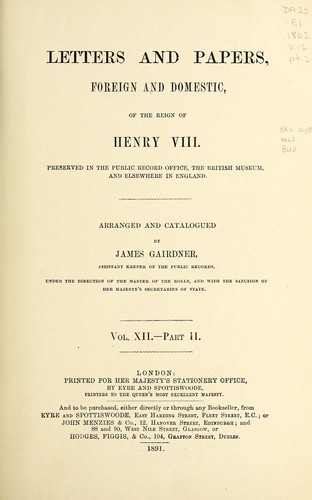
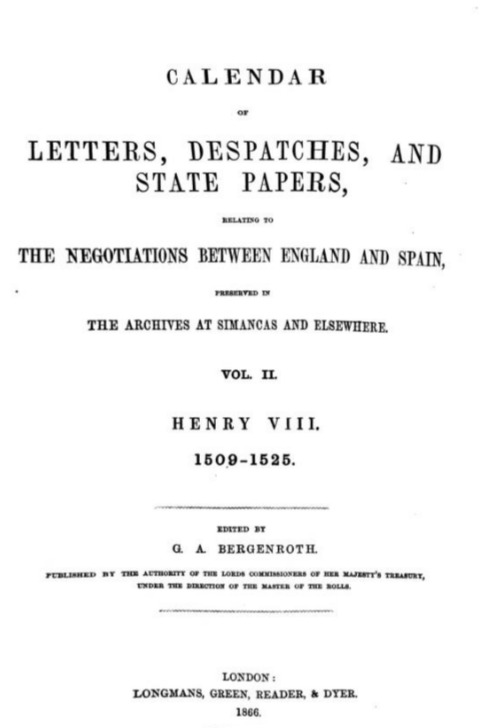

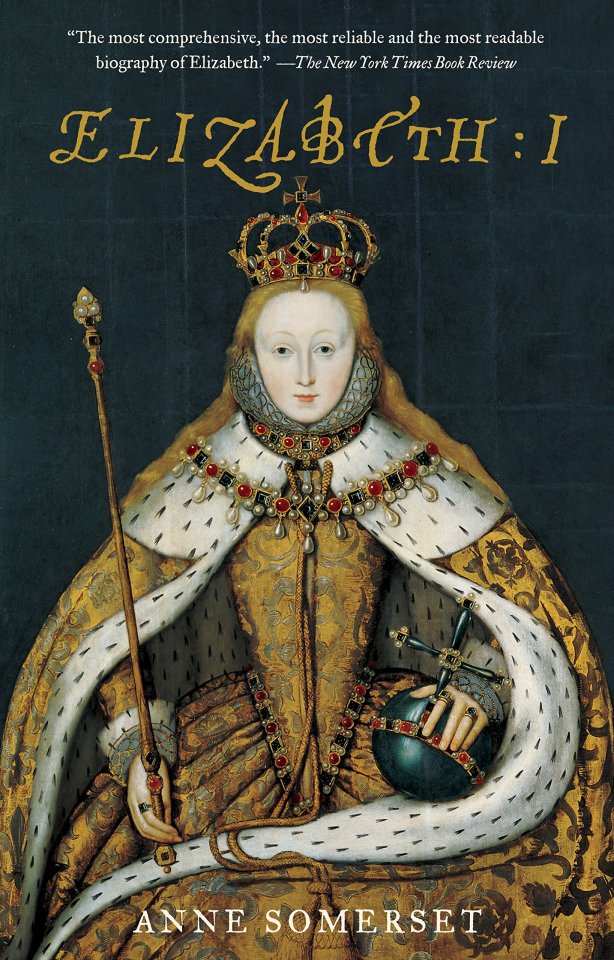
Tudor Week 2023:
Day 5: Most Used Tudor Related Resource: A Non-Comprehensive List of My Favorite Tudor Books
I know I said this wasn't comprehensive, and it really isn't; I used 63 secondary sources and 9 primary source collections for my novel alone. These are just my favs, the ones I go back to regularly, plus one surprise. Warning: this is a long post. *crying emoji*
Tudor England: A History - Genuinely the best one-volume history of Tudor England out there. If you're a Tudor buff, GET THIS BOOK!!! There's not only refreshingly balanced interpretations of every Tudor monarch, but Wooding is careful to focus on ordinary people in Tudor England, with chapters dedicated to their religion, literature, relations with the wider world, authority and dissent, and more! Plus, the footnotes and Further Reading are an absolute delight, chock-full of fascinating research. This is academic history at its absolute best.
The Tudor Chronicles - Ever forgot what important stuff happened in Tudor England in 1505? 1563? 1589? This is the book for you. It's a year-by-year look at Tudor history. This was an invaluable book while writing the novel; it really provided a chronological framework on which I could structure the story. Absolutely essential.
Henry VIII by J.J. Scarisbrick - Despite being published in 1968, this remains a classic biography of Henry VIII, one of the very best out there. While Scarisbrick has aged poorer in some areas than others (i.e. his underestimation of Anne Boleyn and Catherine Parr), his treatment of Henrician foreign policy and the struggle for the annulment has IMO never been bettered. Plus, he has a whole chapter on matrimonial canon law if you want to better understand the background to Henry's quest for an annulment from Catherine of Aragon.
Henry VIII by Lucy Wooding - I actually think Wooding is a better biography of Henry than Scarisbrick, if only because this was published in 2015. Understanding yet never excusing Henry, and with balanced and well-argued interpretations of every historiographical controversy in his reign, this is a book I keep coming back to! Plus, she manages to be sympathetic to Catherine, Anne, and Henry in the Great Matter, no small feat.
Henry VIII: The Mask of Royalty - A bit of an odd book, this is a psychological profile of Henry in his last years, 1540-7. Nevertheless, Smith is careful to never armchair diagnose Henry with anything, but rather bring out facets of his personality which are often ignored, like his obsession with honor and deep-rooted conviction in his close relationship with God as an anointed monarch. This was really helpful in fleshing out Henry as the main character in my novel.
Henry VIII: The Decline and Fall of a Tyrant - If Lacey Baldwin Smith focuses mainly on Henry's psyche from 1540-7, Robert Hutchinson provides a more general picture of these last years. He's particularly insightful on Henry's declining health, his war with France, court factionalism, and the economic woes England faced as a result. I wasn't as familiar with the non-matrimonial aspects of Henry's reign when I was writing the novel, so this book proved a godsend to me.
Six Wives - I know, I know, David Starkey is a racist POS. But he somehow managed to make the (so-far; I hope Suzannah Lipscomb will change this) best overview of the six wives. Weir is downright unreliable and Fraser repeats a number of myths and is a strong CoA partisan. It's Starkey who debunks myths and offers intriguing interpretations of everything from the dating of Anne and Percy's relationship to proof of Foxe's story of Catherine Parr's near-arrest.
Catherine of Aragon by Giles Tremlett - Why it took seventy years to supersede Gareth Mattingly's biography on Catherine, I don't know, but Tremlett did it. This is a richly detailed, fair book on Catherine, and while he is sympathetic to Catherine, he doesn't present her as a plaster saint. Still, it's hard to feel anything but admiration for her after this biography. This is the closest book we'll get to knowing her as a person.
The Life and Death of Anne Boleyn by Eric Ives - This book deserves to be called "the Anne Boleyn bible". An underrated feature of this biography is its fascinating and insightful analysis of Anne's faith, presenting convincing evidence of her evangelical beliefs, and her artistic patronage. Even if I don't agree with his theory of her fall, this is still the best Anne biography out there.
Jane Seymour and Anne of Cleves by Elizabeth Norton - In a small field of books about these two queens, Norton manages to produce the best ones. Due to the paucity of evidence, there's naturally a lot of speculation and use of "might have", but she does the best of any book at producing a picture of these two queens as actual people (with thorough citations to boot).
Young and Damned and Fair by Gareth Russell - I feel I should clarify that I don't agree with Russell's analysis of Catherine Howard's relationship with Manox and Dereham; it was not consensual (although I think Dereham groomed her into thinking it was). That being said, Russell sweeps away many of the myths and misconceptions about Catherine to present a very empathetic, yet never biased book about this tragic queen. Plus, he includes a wealth of details about court life and anecdotes about Catherine not found in other bios.
Catherine Parr by Susan James - James is practically the expert on Catherine Parr; it was James who really proved that Catherine was far more passionate and lively than popular belief has it. Thus, it's no surprise this biography is superb. James is particularly good on Catherine's 1544 regency, household, and her Protestant beliefs, really giving you a detailed picture of her faith.
Letters and Papers (L&P) of Henry VIII and the Calendar of State Papers, Spain (CSP Spain) - These two Victorian primary source collections are invaluable resources for researching Henry's reign. They're collections of summaries (and sometimes transcripts) of primary sources for Henry's reign. This is the bedrock of nearly all books about his reign, so much so that excerpts of it are part of my set texts for next term. Plus, there's so much in it; it's a never-ending-buffet for Tudor buffs.
Dress at the Court of Henry VIII - What color shoes did Catherine Parr like to wear the most? How did clothes communicate royal status and political leanings, for both Henry and his wives? How did Henry's children, courtiers, and servants dress on different occasions? This book is the one-stop shop for Henrician fashion. My only complaint is that its illustrations are B&W, but if you combine this with the drawings of gowns in Herbert Norris' Tudor Costume and Fashion, you're pretty much set.
Elizabeth I - The later Tudors aren't really my wheelhouse, but I had to include this amazing biography of Elizabeth I. Forget Weir or Plowden, this is the best biography of Elizabeth out there, and it's a masterpiece of historical biography, period. This book manages to grapple with everything that happened in Elizabeth's nearly 70-year life without getting bogged down in details and preserving a sympathetic, nuanced picture of the woman behind the queenly mask. 10/10, highly recommend!!
#tudorweek2023#dailytudors#tudor era#this is a long post#many books#short reviews for each#but I hope you enjoy!!#for legal purposes what i'm about to say is not me endorsing this#but nearly all of these books are available on *certain e-book* websites#if you're not feeling adventurous#many are available on Internet Archive as well
121 notes
·
View notes
Text
I shake my head. “I think not. For all his faults, for all your disillusionment in me, you always wanted the same man to take the throne as I did. For all the revenge you desired to take of me, James you always wanted triumphant. It would be a better revenge, a more lasting one, if the son of Scots came to rule, supplanting the line of English Tudors, would it not?”
I'm sorry WHAAAAAAAAT
Why would Mary prefer James over Philip when Philip is literally a Catholic. Like yeah James is her son but if she wanted James over Philip... why didn't she say so? She bequeathed her claim to Philip. She could have left it to James, or someone else or to nobody at all.
It's kinda insulting to Mary to act like her biological tie to James overrules everything else in her life including her THOUGHTS and OPINIONS. Oh she's vocally angry with James? Doesn't matter. Primary sources? Doesn't matter. She's his Mother. She Loves him. She must want him to succeed. Don't need any evidence. His success is her success because she is his Mother.
14 notes
·
View notes
Text
A few entries allow us a glimpse into the relationship shared between Elizabeth and Henry. A sum of 3s 6d spent for "eggs, butter, and milk for the King and Queen" implies a special treat, but gives no clue about when, where, and how the ingredients were used⎯or why they were purchased from the queen's Privy Purse rather than from the kitchen accounts. Her purchase of a pound-and-a-half of gold of Venice, 8 ounces of gold of Damascus, and an ounce of Venetian silk for making the "lace and buttons for the King's mantle of the Garter" suggests that Elizabeth made the Garter with her own hands, a distinct act of affection in a 17 year old marriage that had the Great Wardrobe couture at its disposal.
Arlene Okerlund, Elizabeth of York: Queenship and Power / Privy purse expenses of Elizabeth of York : wardrobe accounts of Edward the Fourth. With a memoir of Elizabeth of York
5 notes
·
View notes
Text
Elizabeth Woodville historians challenge:
Try and actually read contemporary primary sources rather than relying entirely on Tudor chronicles and your own imagination to prove your point
Try and actually reassess contentious aspects of life instead of simply pretending they don’t exist (or rewriting and reframing them to make it seem like they weren’t that bad/complicated) to make your own job easier
Try and make your discussions revolve around Elizabeth herself rather than repeatedly de-prioritizing her and disregarding her own circumstances her in favor of others (usually Edward IV, “the Woodvilles”, or Margaret of Anjou)
End result: It'll actually feel like you're "reassessing" or "defending" her rather than making hollow sympathetic claims that you are while not actually contributing anything substantial, relevant or accurate about her queenship and her life
(I'm not going to rant about the godawful text I just read which prompted this because I value my blood pressure, but suffice to say that this is a repeated pattern when it comes to historical analyses about her. Yet another example being her most academic biography till date)
5 notes
·
View notes
Text


"Cromwell coolly betrayed his ally in religion when she was becoming obstructive and a liability to his plans for the future, and the tale is abominable." Diarmaid MacCulloch, 2014
//
"And then you see the real story, and just the big outlines of it, which should have been there for all of us; that Cromwell’s career is held back under Anne, it is not advanced. As soon as she’s dead, whoosh! He’s away! He’s a baron, he’s a knight, he’s Lord Privy Seal. That should have told all of us, and it didn’t." Diarmaid MacCulloch, 2019
//
"Cromwell wants to be Henry's right-hand man; he wants to be the chief advisor. Anne wants to be Henry's right-hand woman, she wants to be the chief advisor. You cannot have two in the one court." Dr. Lauren Mackay, 2022
//
"Cremuel said lately to me that were the Lady to know the familiar terms on which he and I are, she would surely try to cause us both some annoyance, and that only three days ago she and he had had words together, the Lady telling him, among other things, that she would like to see his head off his shoulders. "But," added Cromwell, "I trust so much on my master, that I fancy she cannot do me any harm." I cannot tell whether this is an invention of cromwell in order to enhance his merchandise. All I can say is, that everyone here considers him Anne's right hand, as I myself told him some time ago." Eustace Chapuys to the Emperor, June 1535
"Now [Cromwell] stands above every one but the Lady, and every one considers he has more credit with his master than Wolsey had." Eustace Chapuys to the Emperor, November 1535
TudorWeek2023, Day 1: Favourite Tudor Rivalry(/Alliance): Anne Boleyn & Thomas Cromwell
#was going to use that top left for my norfolk one; but.....#tudorweek2023#i'll have to use the tudors which i almost used for this one but i didn't actually have any saved. oop#wildcard: combo#primary sources
40 notes
·
View notes
Text

Henry VIII of England (1509-1547) enthroned. -The National Archives.
#primary sources#Tudor England#Tudor dynasty#King Henry VIII of England#King Henry VIII#Henry VIII#Henry Tudor
9 notes
·
View notes
Text
this letter by Rafe Sadler always has me absolutely creased. Honestly good for them for not being 'ruled' hahah
(For anyone who’s read the mirror and the light, Mantel actually mentions this incident in passing)
(Also, 'set by their heels' means to be put in the stocks)
'In 1537 Sir Ralph Sadler was sent into the North, just after the suppression of “the Pilgrimage of Grace.” In a letter from Newcastle, 28 Jan. he gives an account of the still agitated state of the country through which he had just passed:’
‘Syr,—I saw no likelihood of any lygtness or desyre of devision amongst the people throughout the whole Bishopricke, which is a gret countrey, savyng in one towne, which is called Daryngton; and there I noted and perceyved the people to be very fikell. My chance was to come into the towne in the evenyng, about vi of the clocke, or somewhat afore; and when I alighted at my lodging, I think there was not passing iii or iiii persons standing about the inne doore, assuring your Lordshipp, that I was scant ascended up a payre of steres into my chamber, but there was about xxx or xl persons assembled in the strete afore my chamber windows, with clubbs and batts; and there they cam rooninge out of all quarters of the strete, and stode together on a plompe, whispering and roundinge together.
Whereupon I called unto me myn host, who seemed to be an honest man, and I asked him what the people meant to assemble so together? He answered me, that when they saw or harde of any comyng out of the South, they used always so to gather together to here newes. I told him it was ill suffered of them that were the heddes of the towne to let them make such unlawfull assemblies together in the strete, and that it was a very ill example, and hard to judge what inconveniencys might followe, or what attemptats they wold enterprise when such a number of light felowes were assembled. He answered me by his faith, that the heddes of the towne could not rule them, nor durst, for their lyves, speke any fowle words to them; but, quod he, I thinke myselfe to be in som credite with them; and, quod he, ye shall see that I shall cause them to scatter abrode, and every man to go to his home by and by.
Marry, quod I, if ye do well, ye shoulde set some of them by the heles. No, quod he, God defende; for so might we bringe a thousande on our toppes within an hower; but, quod he, ye shall see me order them well ynough with fayre words; and thereupon he went to the route in the strete, as they stode whispering together, and with his cappe in his handes, prayed them to leve their whispering, and every man to go home; and there came they all about him, and asked him who I was? whense I cam? and whither I wold? Myn hoste told them, that I was the kyng's servante, and going from his Highnes in ambassade into Scotland: whereunto one of them replyed and sayed, that could not be true, for the Kyng of Scoth was in Fraunce. Nevertheless, in fine myn host so pacyfyed them, that every man went his way; but moche ado he had, as he told me, to persuade them to beleve that I went into Scotland; and they all with one voyce asked when my Lorde of Norff. wold com, and with what company? and so myn host cam to me as a messenger from them to know the trewth; and I sent them word that he wolde be at Danncaster on Candlemas Even; and that he brought no more with him but his owne houshold servants; which pleased them wondrous well; and so every man departed, and I harde no more of them. I assure your Lordship the people be very fykell, and methinketh in a marvellous strange case and perplexite, for they stare and look for thinges, and fayne wold have they cannot tell what'
The History and Antiquities of the County Palatine of Durham: Volume 3, Stockton and Darlington Wards, (London, 1823), pp. 350-377
#‘saving in one town’��#I know from the perspective of the elite this is flatly unacceptable#but to me it’s absolutely hilarious and I love it. as I say good for them lot frankly#an interesting insight into early modern communities#I used this for an essay on the topic actually#I’m not sure who the letter was written to? id assume TC but I have no clue#Tudor history#early modern history#popular cultures#primary sources#Raphe Sadler#Ralph Sadler#Tudor#the Tudors#history
3 notes
·
View notes
Text
For this to make sense read this gorgeous fic by @nocompromise-noregrets and also have knowledge of my OT3 verse. This is an in universe fandom post (on a tumblr that it is like, Good Website But Also Still Hell Site)
So I went to the panel discussion at Welles Hall (with a friend which was life changing levels of great) and I wanted to write a book report for the tumblr.
Natalie is actually Aphrodite. Like, I was speechless. I do not know how us mere mortals can gaze at such beauty and anyway, I was the most useless of lesbians.
I’m not personally into men romantically or sexually but like, aesthetically James and Jon and Rupert are very appealing. Like a sunset or a piece of art. Also very charming, A+
Ahmed is a sweetheart and very funny.
The questions/answers were all great but uh, some highlights:
Ahmed really talked about how much he admired the work Rupert did in particular - that he really sat down with the primary sources and asked great insightful questions (quote “I think in some ways actors have a similar drive to historians - to understand people, even repellant ones”)
“People ask me if I have any sympathy for him [Norwich] and the answer is no! I loathe him - the historical study is fascinating and important but I have never liked him”
Rupert said it was hard to be in [Norwich’s] head - that he ended up developing a ritual for getting in and out of character to separate himself - he really gave credit to the shows intimacy coordinator for the workshopping before anyone was on set.
(Aside we learned that Rupert was cast really early on - apparently they didn’t want anyone else because he’s quote ‘handsome and charming and a brilliant performer and that’s what we needed’)
Maya said there were times she had to stop herself from quote ‘making excited squeaking noises’ on set (world renowned historians - they are in fact just like us) and that her favourite set was the Arthurian Masque plus “one I can’t talk about yet” *eyes emoji*
Maya “I went into the process of revising it (The Tudor Triad: New Edition) with delight and sadness” she talked about how she loved being back with these three but also the heaviness of it - how she wrestled with how much to include.
Ahmed interjected and said that it was one thing he really struggled with as well - that only having Norwich’s voice, Noriwch’s details on the abuse was something particularly sickening and that’s in large part why it was so incredible to see James’ performance.
(“I think, I hope that somewhere in the afterlife Thomas Cromwell is glad to see that he is given his story back to him”)
Both James and Rupert really talked about how the townhouse visit was the most confronting part - that Norwich’s journals are awful and chilling but somehow being in the space where it happened, that made it all the more real, especially because by this point they’d both been in their characters heads for a while.
“It was horrible - i actually don’t like to talk about it in detail honestly”
They both talked about how great Ellie at Welles Hall was - that she and Ahmed and Maya really talked them through the diary/papers and the decoding. (“All props to Rupert and James - not only is the content not an easy read, reading/interpreting Tudor handwriting is a process and reading Tudor handwriting in a mix of languages is even worse”)
Natalie “my guiding sense was that Anne would rip him [Norwich] apart with her bare hands and dance on the remains - I just found that through playing her, reading her own words even if it’s never referred to directly”
Jon was very sure he wanted to have what Henry says to Norwich remain a mystery (though Rupert knows!) and he didn’t want the audience to see Henry’s face when it was sad - Rupert said that it was ‘incredibly bloody satisfying’ to play the moment when Norwich realises that he has ‘fucked around and found out’
Rupert said he thought that Norwich absolutely believed in his own mythology - that essentially, might makes right, that he was a great Roman General etc. (Which apparently Ahmed is currently working on an academic article about Norwich and Ancient Rome)
I’ll be back for part II: the Lionel Discussion Panel later.
-semperlyqueerly
7 notes
·
View notes
Text

Huldremose Woman
Or Huldre Fen Woman, is a female bog body recovered in 1879 from a peat bog near Ramten, Jutland, Denmark.
On 15 May 1879, the body was discovered by an unknown worker working in Ramten, Denmark, after digging a meter through the peat.
Clad in wool and sheepskin, this over-40 warrior or sacrifice—her right arm severed—offers a gritty glimpse into the intriguing past of Northern Europe.
Analysis by Carbon 14 dating indicates that she lived during the Iron Age, sometime between 160 BCE and 340 CE. The mummified remains are exhibited at the National Museum of Denmark. The elaborate clothing worn by Huldremose Woman has been reconstructed and displayed at several museums.
Unlike many other bog bodies, which are often found naked, the Huldremose Woman was found clothed with an array of accessories. Analysis of these items, including the rare evidence of plant fibre textile, has shown that peoples of the Scandinavian Early Iron Age had knowledge of and used a wide but previously unrecognized range of textile weaving and dyeing technologies, as well as animal skin technologies. Her clothing has undergone extensive analysis by scientists at the Danish National Research Foundation's Center of Textile Research and the National Museum of Denmark.
Huldremose woman wore several layered sheep skin capes with the woolly sides turned outward. These were of a complex construction:
"The two skin capes are made from well-prepared, curly fleeces. The outer cape is the largest, measuring 82 cm in height and 170 cm in width . It is constructed of five primary, rectangular skin pieces, with two minor triangular pieces under the yoke. Most pieces are from dark sheep skin, but on the fur side, it has an insertion of four light goat skin pieces. On the flesh side, it has an upper, front lining of dark sheep skin, which is a unique detail. The inner cape is slightly smaller, measuring 80 cm in height and 150 cm in width . It is constructed of 7-8 primary sheep skin pieces, mostly rectangular and 22 secondary patches of sheep, goat and deer skin. Both capes have an asymmetrical design with a slanting neckline."
She also wore a wool plaid scarf, fastened by a bird bone pin, and a wool plaid skirt. Analysis by scientists at the National Museum of Denmark has shown that the colour of the skirt was originally a blue or purple plaid, while the scarf was a red plaid. Chemical dye analyses showed the use of natural plant dyes and mordants and revealed that threads of at least 5 colours were woven to create the complex plaid patterns. Impressions on the skin of the Huldremose Woman, as well as a small amount of surviving degraded fibres, suggest that below her wool clothing, she wore a white inner garment made from plant fibres that reached from the shoulders to below the knees. The type of plant fiber is unclear but other evidence from the time period suggests that it could have been made of nettle. A horn comb, a leather thong, and wool textile headband were found as well in what appears to be a pocket on the inner cape, made out of a bladder.
In a 2009 study led by Dr. Karin Frei, Huldremose Woman and the set of clothing she wore underwent strontium isotopic analysis. This research indicated that the wool scarf has a local provenance. The wool skirt was found to be made of wool from at least three different provenances, including a local signature and a signature compatible with northern Scandinavia (e.g. Norway or Sweden). The plant fibre garment and the Huldremose Woman herself likely have a non-local origin, again showing compatibility with northern Scandinavia. In general, the study points to the possibility that textiles were either traded or brought as raw materials far more commonly and over longer distances than previously assumed.
Source: Facebook
The Tudor Intruders
4 notes
·
View notes